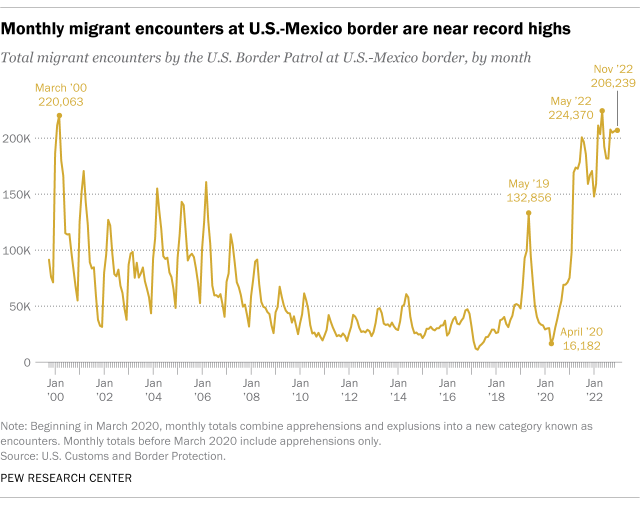
The Boston Herald is a major local news publication in the Boston area second only to the larger Boston Globe. While the Boston Herald is considered overall Somewhat Conservative in its bias, how does this bias impact the publication’s reliability?
In this article, we will take a look at the biases of the Boston Herald in order to better understand the accuracy and reliability of the publication. In doing so, readers will gain a better understanding of what they can trust when reading the Boston Herald.
Does Reliability Matter?
Reliability, in general, refers to how trustworthy or accurate information, or in this case, a news source is. If we consider this definition, it quickly becomes clear why reliability is important in media sources. If we can’t trust the things we read then there isn’t much of a point in continuing to consume content from that source, after all. So how exactly can we gauge the reliability of a news source anyways?
There are several potential measures of reliability to look out for when trying to determine whether a media source is reliable or not. Red flags for an unreliable article can include the presence of wild unsubstantiated claims, facts dependent on other unreliable sources, heavy use of opinionated language, and more. Some indicators of a reliable news source, on the other hand, include things like:
- Absence of subjective/opinionated language in articles
- Credible sources cited (e.g., neutral sources, .gov, .edu websites)
- Facts and statistics backed by multiple relevant outside sources
- Use of primary sources when possible (e.g., interviews, quotes)
- Information that remains consistent across news sources
How Does the Boston Herald Fare with its Reliability?
The political reliability index developed by Biasly objectively assesses news organizations’ accuracy and trustworthiness. The Boston Herald’s overall Reliability Score has been rated as ‘Good’ by Biasly. This rating is a weighted average of two distinct scores: the Fact Analysis Score and the Source Analysis Score, each evaluating separate components of The Boston Herald’s Reliability. When computing the Average Reliability of the article the Fact Analysis score is more heavily weighted. These ratings are as follows in the next two paragraphs:
The Boston Herald’s Fact Analysis Score is ‘Excellent,’ which suggests readers can trust almost all of The Boston Herald’s content online. The Fact Analysis score focuses more on the accuracy of claims, facts, and sources presented in the article and any hints of selection and omission bias, which we will discuss further in the article.
The Boston Herald’s Source Analysis Score is ‘Fair,’ which suggests readers can trust some of the sources, links, and quotes provided by the news source. This score, which is based on A.I., focuses on assessing the quality of sources and quotes used including their number, lengths, uniqueness, and diversity.
However, since these scores are based on percentages and averages, individual articles could be more or less trustworthy depending on the context, author, and other factors. Our findings show that The Boston Herald’s reliability is mostly but not all factual because they have retracted several stories in the past or had pieces that were not factual.
Let us analyze the supporting data for The Boston Herald’s rankings and discuss what to watch out for while searching for trustworthy news sources.
The Boston Herald’s Accuracy and Reliability
While the Boston Herald is a Somewhat Conservative news source, how does this bias impact the accuracy and reliability of the publication’s reporting? To get a better picture of how these biases impact the Boston Herald’s accuracy, we will examine a few of the publication’s articles to determine their reliability.
Selection bias is when stories and facts are selected or deselected, often on ideological grounds, to create a narrative in support of the new sources’ ideology. Omission bias, on the other hand, is when different opinions and political views regarding a situation are left out, so that the reader is only exposed to the ideological perspective supported by the author. It’s important to keep in mind these two types of biases when trying to assess an article’s level of accuracy.
Biasly’s accuracy rating system is based on a simple percentage scale with 1 percent being the least accurate and 100 being the most accurate. These ratings are determined by counting the number of credible sources used by that publication on average. As mentioned earlier, the Boston Herald received a Biasly accuracy score of “Excellent,” For comparison, The Boston Herald’s major local competition, the Boston Globe, received an “Excellent” reliable score from Biasly and a factual reporting score of “high” on MBFC. Both publications also share an MBFC credibility rating of High. Overall, the two competitors are similarly reliable with opposing biases, with The Boston Herald leaning right and the Boston Globe leaning left.
Many of the Boston Herald articles rated by Biasly analysts were given reliability scores of “Excellent” with a few outliers, the lowest being “Good.” However, it also bears mentioning that the Boston Herald articles with reliability ratings on Biasly seem to lean liberal, which is outside the norm for this publication as most of their articles lean conservative or center.
As an example, the Boston Herald article entitled “Charlie Baker signs Massachusetts climate bill” received a bias score of Center-Left leaning, and a reliability score of “Excellent.” The article is a simple and quick explanation of a climate bill signed by the then-governor of Massachusetts Charlie Baker. The author cites the law itself as well as a number of statistics on how this bill would reduce emissions in the state. As a result, the author does a good job avoiding selection and omission bias by mentioning the reactions to the bill, both negative and positive, from both sides of the aisle. Because environmental legislation is typically a liberal policy, its discussion in this article is likely what makes it lean liberal in Biasly’s analysis. It is also worth mentioning that Charlie Baker is a liberal Republican politician, making the bias a bit more nuanced than the typical liberal Democrat/conservative Republican dynamic we normally see.
Analysis of Reliability in Boston Herald Opinion Pieces
Because opinion pieces are the opinions of their authors, they tend to be more biased than news reporting. Opinion pieces are typically the author writing a persuasive argument to convince the reader to agree with their views on a particular topic, so they do tend to be less reliable than their news counterparts. For example, the Boston Herald opinion piece “Peter Lucas: How did Americans lose their country? Just ask Biden about his awful border policy,” uses selection and omission bias to sway readers to the author’s way of thinking.
Throughout the opinion piece, the author makes a number of claims that Title 42 is incredibly important to maintaining the security of the southern border such as the statement
“Biden refused to extend Title 42, the last shred of any semblance of border control.”
The author omits any sources for the claim that Title 42 is the only thing maintaining border security, nor does he explain what Title 42 is, but instead expects readers to agree with his claims without a source. Title 42 was, in reality, a public health rule aimed at preventing the spread of COVID-19 which allowed U.S. officials to turn away asylum seekers at the border. In preparation for the expiration of Title 42, the Biden Administration actually created a new restriction, which, according to CBS News, will begin “disqualifying migrants from U.S. protection if they fail to request refugee status in another country, such as Mexico, on their journey to the southern border.” This new restriction is actually stricter than Title 42 in many ways, so the belief that Biden has “signaled to the world that the southern border was wide open. Come one, come all, no questions asked,” as the author of this article suggests is simply unsupported.
In the opinion piece, the author also makes mention of the busing of illegal immigrants by Texas Governor Greg Abbott to major cities like New York City and Chicago, then goes on to criticize the recently declared state of emergency in both of these cities.
“States of emergencies have not only been called in El Paso and other border cities in Texas and Arizona but in New York and Chicago as well, as shelters and emergency-bed capacities have been overwhelmed.”
While this quote correctly claims that a state of emergency has been declared in these cities, it neglects to mention that both the NYC and Chicago executive orders cite the recent surge in migrants as the reason for the state of emergency. The Chicago declaration even specifically mentions that the new arrivals are being bused to the city by Texas Governor Greg Abbott. The influx of migrants to these cities in particular is a result of these immigrants being bused to these cities. While there is no denying an increase in migrant encounters on the southern border in recent years, as evidenced in a study by Pew Research Center, border crossings, though still high, have actually decreased in the wake of Title 42’s expiration.

Source: Pew Research
The article closes with the line: “How did you lose your country? Ask Joe Biden.”
This quote implies that, because of Joe Biden’s border policies, the United States is literally coming to an end. Again, the author neglects to cite a source, nor explain how the country is coming to an end in this claim. Instead, it seems to be included to elicit an emotional reaction from readers.
While the right-leaning bias present in this opinion piece fits with the overall conservative leaning of the Boston Herald and its readers, it also certainly impacts the reliability of opinion pieces when they are more aimed at politics than taking a nuanced and researched look at the issue.
So is the Boston Herald Reliable?
Overall, the Boston Herald can be said to be a solidly reliable and accurate news source. That said, it is important to keep in mind that the biases and reliability of news will vary from article to article, author to author, and by what kind of article you are reading. To examine a particular article, you can install Biasly’s News Check Chrome Extention to check the reliability and bias scores of any news article.
While some articles will do a good job of maintaining a neutral and factual view of the news, others will fail to do either. Because of this, it is always important to examine what biases might be present in the news and how these biases might impact the reliability of any given article.


























